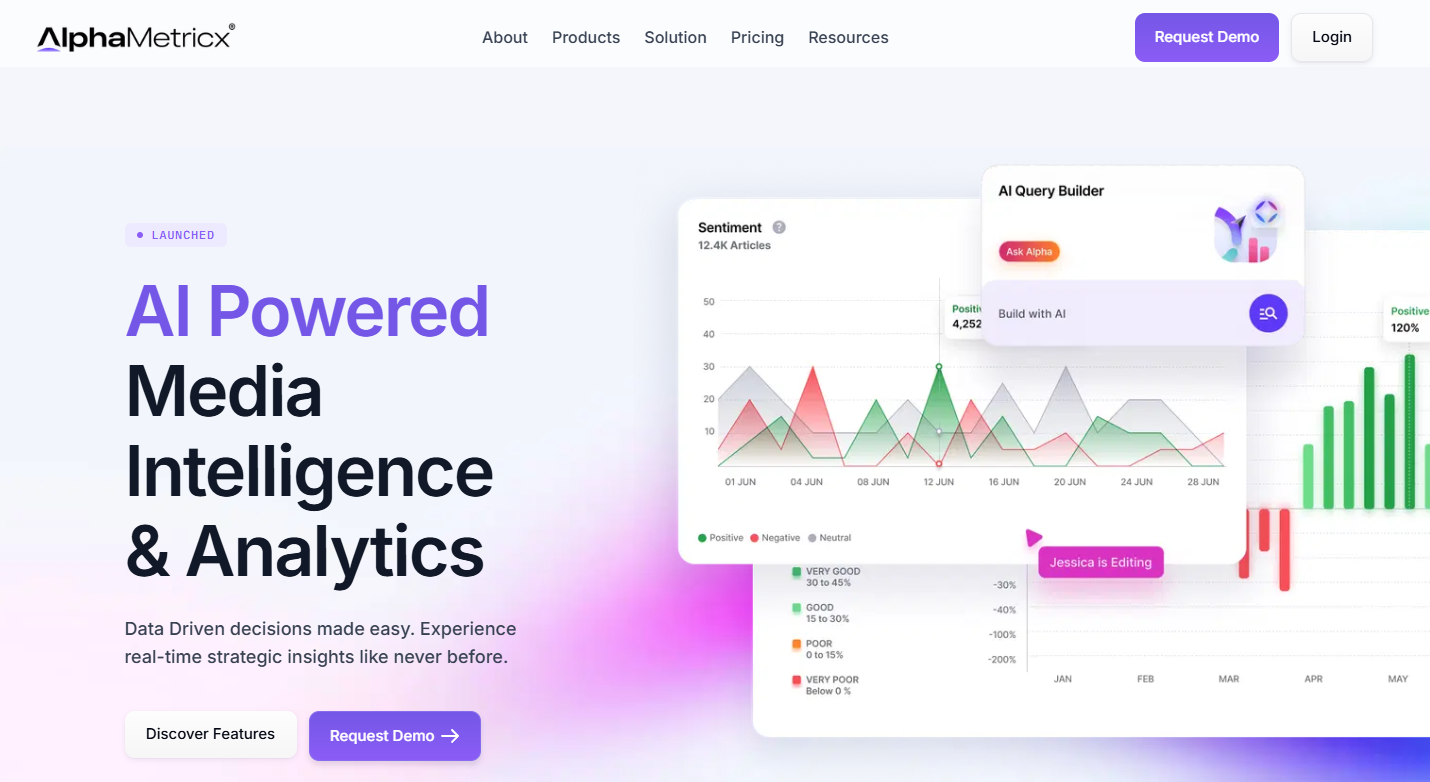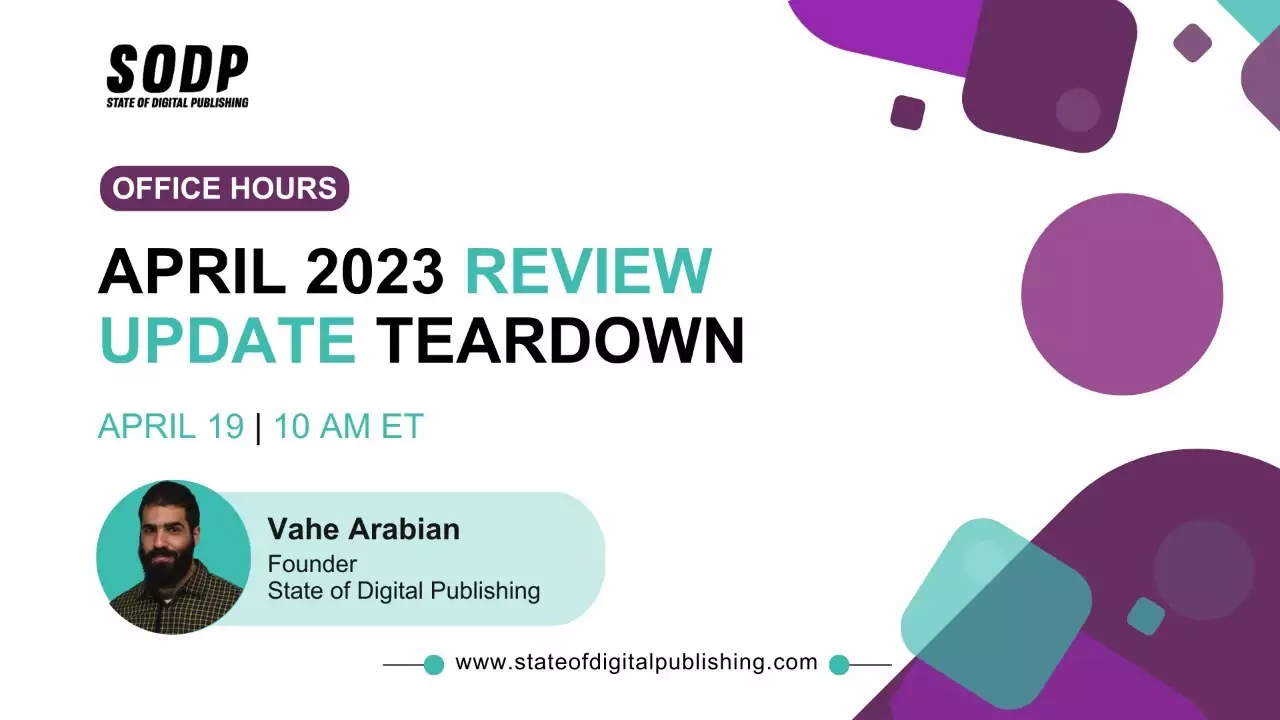What’s been happening in the world of digital publishing over the last week? Here’s your weekly round-up of news, announcements, product launches, and more.
Future of digital publishing
[UK] Online Safety Bill introduced to Parliament, but industry seeks further protections for journalism
The Government’s Online Safety Bill has been introduced in Parliament, but still lacks promised protections for journalistic content.
Culture Secretary Nadine Dorries has committed to an expedited appeals process for news publishers whose content is taken down by tech platforms. Read more
Why it matters:As the article points out, “industry representatives are still waiting on the promise that platforms must not remove content from recognised media outlets at all. Dawn Alford, executive director of the Society of Editors, said: “As recognised by the Culture Secretary, the bill does not, in its present form, do enough to protect legitimate journalistic content and further amendments must be added as a matter of priority if the government is to fulfil its manifesto pledge of defending freedom of expression.””
Audience growth
6am City: The Fastest Growing Newsletter-First Local Media Company in the United States Reaches 1 Million Subscribers
6AM City, the fastest growing newsletter-first local media company, successfully tripled the size of the business over the past six months. In the company’s short six-year timeline, it has grown to more than 1 million subscribers in 24 U.S. cities.
“We spent the past six years perfecting a highly scalable model for creating and growing our hyper-local newsletters in cities large and small,” 6AM City CEO Ryan Johnston said. “Hitting 1 million subscribers is validation that we are providing value and filling a gap in our local markets. We’re proud to say the model works exceptionally well and has allowed us to build out a national network of 6AM Cities.” Read more
Why it matters: “In prospective markets, 6AM City has established partnerships with organizations looking to expedite economic recovery, including economic development entities, professional sports teams, and the entrepreneurial ecosystem. These relationships along with our 1 million subscribers and strong advertising partnerships are accelerating the company’s expansion and are a driving force behind market selection.”
Advertising
Meta to test new tools to give brands control over ad placement on its platforms later this year
Meta, formerly known as Facebook, says it will begin testing new content tools designed to give advertisers control over where their ads are shown on Facebook and Instagram feeds, the company announced on Thursday. The tools will allow companies to prevent their ads from being placed next to unsuitable content, such as posts about politics, tragedy or violence. Read more
Why it matters: As the author points out, “The new tools will be Meta’s response to growing demands from advertisers who have repeatedly asked for more control over their ad placements online in order to ensure they aren’t displayed next to unfavorable content.”
Tech
Russia’s war hits Yandex, the ‘Google of Russia’
Russian press reported that Yandex — a local giant often called the “Russian Google” — is in negotiations to sell its media division, with Russian social networking giant VK named as a potential buyer.
Sources familiar with the matter confirm to TechCrunch that discussions to sell the division — which includes Yandex News, a news aggregator, and Yandex Zen, a blogging platform linked to a recommender engine — are “in the last stages.” Read more
Why it matters: As the authors point out, “Western sanctions have already contributed to a number of foreign tech giants pulling out of Russia as payments have been disrupted and high-level pressure to withdraw their services is amped up.
One inevitable consequence of limits on Western tech giants is that it creates opportunities for Russian companies to step in and fill the gap.”
South China Morning Post to spin off blockchain venture after the successful debut of its archival digital collectibles
The South China Morning Post (SCMP) has launched its most significant transformation in the digital age, spinning off an independent venture to turn historical art, photographs and content from its 118-year-old archives into tradeable non-fungible tokens (NFTs). Read more
Why it matters: “The move to create an independent NFT venture will “accelerate SCMP’s revenue and enterprise value growth while allowing the publishing group to remain on its core mission of delivering fact-based journalism … to millions of readers around the world,” SCMP said in a statement.”
Social media
Nearly 50% Of Twitter Users Tweet Less Than 5 Times A Month
Does Twitter have an engagement problem?
A new study from Pew Research Center finds 49% of US adults on Twitter qualify as “lurkers.”
Pew Research Center defines lurkers as infrequent tweeters who have posted less than five tweets per month since they first opened their account.
Moreover, when lurkers do tweet, they’re more likely to reply to someone else’s tweets rather than post their own. Read more
Why it matters: The article points out: “This paints a picture of Twitter being a site full of content published by a small percentage of users, which gets consumed by a large percentage of users who aren’t adding to the conversation.”
TikTok’s biggest Chinese competitor bets big on Brazil
Kwai’s growth in Brazil mirrors its rise in China. Kwai’s parent company, Kuaishou, launched its short-form video platform in 2013, reaching lower-income users with featured vlogs of rural farmers, factory workers, and traditional artisans. Like TikTok, much of Kwai’s appeal is its main feed of recommended short-form videos, personalized by Kuaishou’s algorithms. Users can directly follow creators like Moreira in the app and watch and tip them in livestreams. Read more
Why it matters: The article points out: “While TikTok in Brazil focuses on “younger audiences, teenagers, mainly centered in the [richer] southeast region,” Kwai serves a demographic from historically marginalized northeastern states, says Victor Barcellos, a social media researcher at the Institute for Technology and Society, in Rio.
Content from our partners
Felipe Oliva, the co-founder and CEO of Squid, one of Brazil’s largest influencer marketing agencies, told Rest of World that though advertisers often look to reach working-class consumers on broadcast television, he recommends those same brands invest in marketing on Kwai.”
SEO
WordPress Releases a New Performance Plugin
WordPress announced the release of a plugin called the Performance Lab plugin. It was developed by the WordPress performance team that is designed to help WordPress sites speed up. The plugin gives publishers the opportunity to use new improvements now before they are included into the core of WordPress itself. Read more
Analytics
Prepare for the future with Google Analytics 4
As per Google’s announcement on its blog: “We will begin sunsetting Universal Analytics — the previous generation of Analytics — next year. All standard Universal Analytics properties will stop processing new hits on July 1, 2023. Given the new Analytics 360 experience was recently introduced, Universal Analytics 360 properties will receive an additional three months of new hit processing, ending on October 1, 2023.”
“Two and a half years ago, we introduced Google Analytics 4 to address these evolving measurement standards and help businesses succeed. Google Analytics 4 has the flexibility to measure many different kinds of data, delivering a strong analytics experience that’s designed for the future. It allows businesses to see unified user journeys across their websites and apps, use Google’s machine learning technology to surface and predict new insights, and most importantly, it’s built to keep up with a changing ecosystem.
Without a modern measurement solution, you leave essential insights on the table that can impact your business. So now is the time to make Google Analytics 4 your cross-platform Analytics solution.” Read more
Why it matters: As the post explains, “Universal Analytics was built for a generation of online measurement that was anchored in the desktop web, independent sessions and more easily observable data from cookies. This measurement methodology is quickly becoming obsolete. Meanwhile, Google Analytics 4 operates across platforms, does not rely exclusively on cookies and uses an event-based data model to deliver user-centric measurement.”












